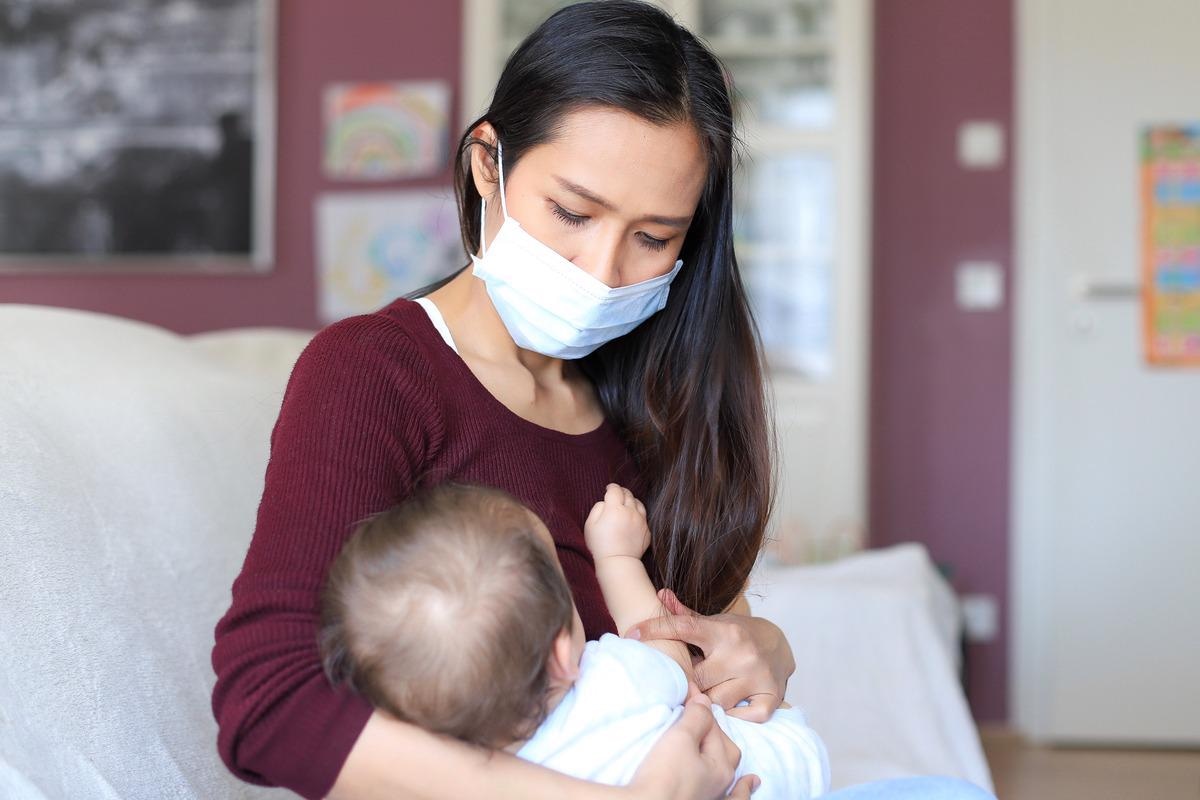In a recent study posted to the Research Square* preprint server and under review at the International Breastfeeding Journal, researchers assessed the presence of anti-severe acute respiratory syndrome coronavirus 2 (SARS-CoV-2) antibodies in human breast milk.
 Study: Anti-SARS-CoV-2-specific antibodies in human breast milk following SARS-CoV-2 infection during pregnancy: a prospective cohort study. Image Credit: Onjira Leibe/Shutterstock
Study: Anti-SARS-CoV-2-specific antibodies in human breast milk following SARS-CoV-2 infection during pregnancy: a prospective cohort study. Image Credit: Onjira Leibe/Shutterstock

 *Important notice: Research Square publishes preliminary scientific reports that are not peer-reviewed and, therefore, should not be regarded as conclusive, guide clinical practice/health-related behavior, or treated as established information.
*Important notice: Research Square publishes preliminary scientific reports that are not peer-reviewed and, therefore, should not be regarded as conclusive, guide clinical practice/health-related behavior, or treated as established information.
Anti-SARS-CoV-2 antibodies have been indisputably found in human breast milk after the incidence of coronavirus disease 2019 (COVID-19) infection in pregnant mothers. However, further research is required to understand the existence and potential of these antibodies against SARS-CoV-2.
About the study
In the present study, researchers investigated the presence of anti-COVID-19 antibodies in the colostrum and breast milk in women with a history of SARS-CoV-2 infection either during pregnancy or at the time of childbirth.
The study included pregnant women having laboratory-confirmed SARS-CoV-2 infection detected via either nasopharyngeal swab (NPS) or deep throat saliva (DTS) samples which were tested using rapid antigen-detection tests or real-time reverse transcriptase-polymerase chain reaction (rRT-PCR) test. The participants had tested positive either during pregnancy or at the time of childbirth. Patients suspected to be COVID-19-positive but had an rRT-PCR negative result were tested again with rRT-PCR if COVID-19 symptoms onset was reported seven days after the initial testing.
Breast milk samples were obtained from six maternity units, including five from Spain and one from Hong Kong SAR, China, between March 2020 and March 2021. Eligible participants had not received any COVID-19 vaccine and had no prior history of COVID-19 infection. One sample of colostrum and maternal blood was collected from the patients.
The team also recorded data, including age, initial body mass index (BMI), gestational age at SARS-CoV-2 infection, and disease severity. COVID-19 disease severity was classified into asymptomatic, mild, and pneumonia. Furthermore, the gestational age of the patients was evaluated by the sonography assessment performed at the end of the first trimester or date of conception in the case of in vitro fertilization pregnancy.
The milk collected was evaluated against SARS-CoV-2-specific immunoglobulin A (IgA), IgM, and IgG reactive to the SARS-CoV-2 spike 1 (S1) receptor-binding domain (RBD). The serum samples were also tested against the SARS-CoV-2-specific antibodies. IgA and IgG antibodies were determined by enzyme-linked immunosorbent assay (ELISA), while IgM was determined via chemiluminescent microparticle immunoassays.
Results
The study included a total of 187 women, including 20.3% of women who were diagnosed with SARS-CoV-2 infection in the first trimester, 34.8% in the second trimester, and 44.9% in the third trimester. Almost 34% of the women infected in their third trimester had active COVID-19 at the time of childbirth. The study results showed that 79.6% of the colostrum samples had IgA, 3.1% had IgG, and 19.7% had IgM. Among the 76 colostrum samples tested for rRT-PCR, 29 were SARS-CoV-2-positive at the time of delivery. The team noted that the analysis of colostrum and serum samples with Cohen’s kappa showed that the two samples had a concordance of 0.09 for IgA, 0.06 for IgG, and 0.29 for IgM.
No significant distinctions were found between the IgG statuses of the colostrum samples and either the disease severity or the time duration of the disease. Moreover, the mature breast milk samples of 3.23% of the women had IgG, 27.4% had IgA, and 0% had IgM.
Conclusion
Overall, the study findings showed significant proof that breastfeeding is safe even if the mother is infected with COVID-19 since there was no detectable virus in the breast milk. The researchers believe that every woman with past or active COVID-19 can breastfeed as anti-SARS-CoV-2 antibodies were found in the colostrum and mature milk.

 *Important notice: Research Square publishes preliminary scientific reports that are not peer-reviewed and, therefore, should not be regarded as conclusive, guide clinical practice/health-related behavior, or treated as established information.
*Important notice: Research Square publishes preliminary scientific reports that are not peer-reviewed and, therefore, should not be regarded as conclusive, guide clinical practice/health-related behavior, or treated as established information.